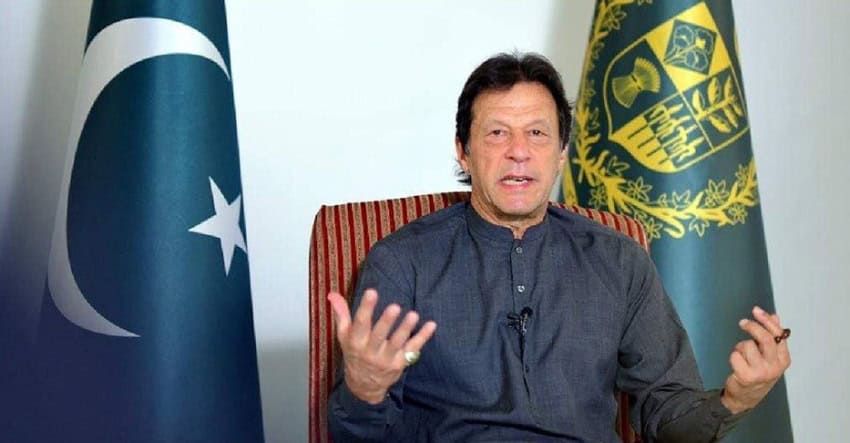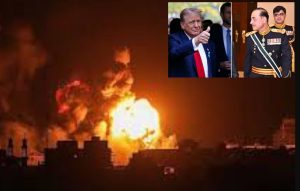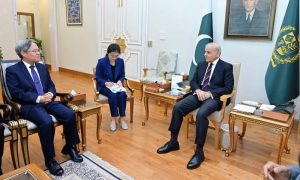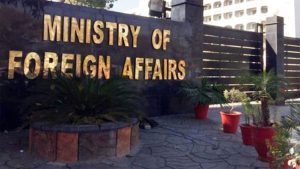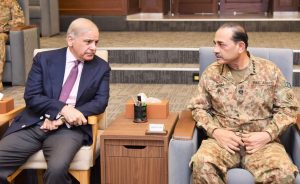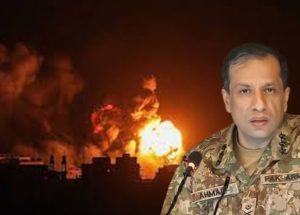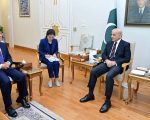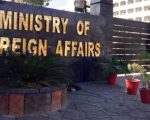KARACHI – Pakistani Prime Minister Imran Khan’s relief measures are likely to cost his government up to Rs300 billion ($1.7 billion) in subsidies and here is where this money will come from.
Ruling out the possibility the International Monetary Fund (IMF) would object to the prime minister’s move, a Finance Ministry official said on Tuesday the relief amount would be arranged by “cutting” various expenditures.
PM Khan on Monday slashed petroleum prices by Rs10 per liter and the power tariff by Rs5 per unit. He also announced some other relief measures, mainly for the information technology (IT) sector.
The move comes at a time when Pakistan’s opposition parties are pushing for a no-confidence motion in parliament to dislodge PM Khan’s government.
“This is a Rs250-Rs300 billion relief package and will be met through cutting different expenditures,” says Muzzamil Aslam, a spokesman for Pakistan’s finance and energy ministries.
“The package requirement will be met through adjustments, including in the [public sector] companies’ dividends and the amount the country has received for COVID-19 from the IMF. The funds are still lying with us and we will use that amount.”
Apart from the cuts, the premier has promised to freeze further increase in energy prices until the next budget, which will be announced in June.
The prime minister announced the measures amid increasing prices of most of the commodities and mounting pressure to tame the burgeoning inflation.
Inflation in Pakistan was recorded at 12.24 percent in February on a year-on-year (YoY) basis, compared to 13 percent in the previous month, according to Pakistan’s Federal Bureau of Statistics.
It has averaged at 10.5 percent during the current fiscal year, against 8.3 percent for the same period last year.
The announcement of the relief package came a month after the IMF approved $1 billion disbursement to Pakistan after completing a sixth review of the country’s reforms under its $6 billion loan programme secured in 2019.
The programme was revived after the government met several IMF conditions, including parliamentary backing to central bank’s full autonomy, uniform implementation of sales tax and energy tariff hikes, but officials say the global lender would not have any objections to the relief measures.
“There will be no objection from the IMF because it looks at the budget deficit. If they will raise any objection we will clear that because we are not increasing our deficit – we are increasing one thing by reducing another,” Aslam said.
“We will cut development expenditures and ask the companies to announce dividends to meet additional revenue requirements.”
https://en.dailypakistan.com.pk/01-Mar-2022/pakistan-cuts-petrol-diesel-prices-despite-global-surge-amid-russia-ukraine-war
Economic experts say the measures may help tame inflation for a short term, but they would have an adverse impact in the long run.
“The measures can control inflation but for a short term. This is a matter of few weeks and months and they won’t be able to hold,” says Khurram Hussain, a business and economic expert.
“If they prolonged it, the impact would be more than what it was in the normal situation and affect the foreign exchange rate.”
Pakistani opposition parties say the prime minister’s announcement was an outcome of their march against his government.
“Electricity and petrol price cuts have been made because of the pressure of the public march,” Sherry Rehman, parliamentary leader of the opposition Pakistan People’s Party (PPP) in the Senate, said in a statement.
“It is strange that the government is calling it a relief. This is ordinary measure amid high inflation and unemployment. The government has increased petrol price by Rs12 and by reducing Rs10, it is being dubbed as a ‘good news’.”
Financial experts believe these relief measures may have political gains, but the decision could raise concerns about the next IMF review.
“It may lead to some short-term political gains and some relief to masses, if implemented properly,” says Khurram Schehzad, CEO of the Alpha Beta Core financial advisory firm.
“The decisions might nervous market investors by raising fears about the next IMF review,” he said. “Today’s subsidy is tomorrow’s inflation.”
However, government officials said the measures were announced keeping in view the temporary nature of the circumstances.
“The idea to announce the relief package was that when you feel that things are temporary and not permanent and you adjust temporary things temporarily… like we spent Rs1200 billion during COVID-19 and the results were exceptional,” Aslam said. “This is just around Rs300 billion.”
The prime minister also announced tax exemption for companies and freelancers in the IT sector, exemption from capital gain tax for IT startups, skill-based internships for graduates and increasing Ehsaas distribution to Rs14,000 from Rs12,000.
Pakistani IT experts hailed the incentives as a “game changer” and called for their early implementation.
“This is really encouraging news for both tech companies and startups, as well as freelancers. The ability to hold foreign payments and investments in foreign currency, among all the other items on the list, will be a game changer,” says Omar Abedin, director of the National Incubation Center Karachi that assists entrepreneurs and startups in business development.
“We need implementation of these policy changes as soon as possible,” he added.

